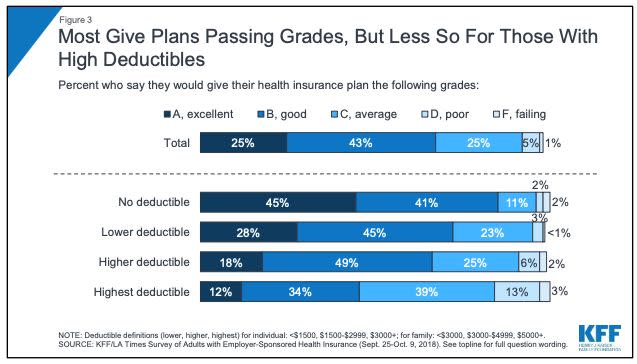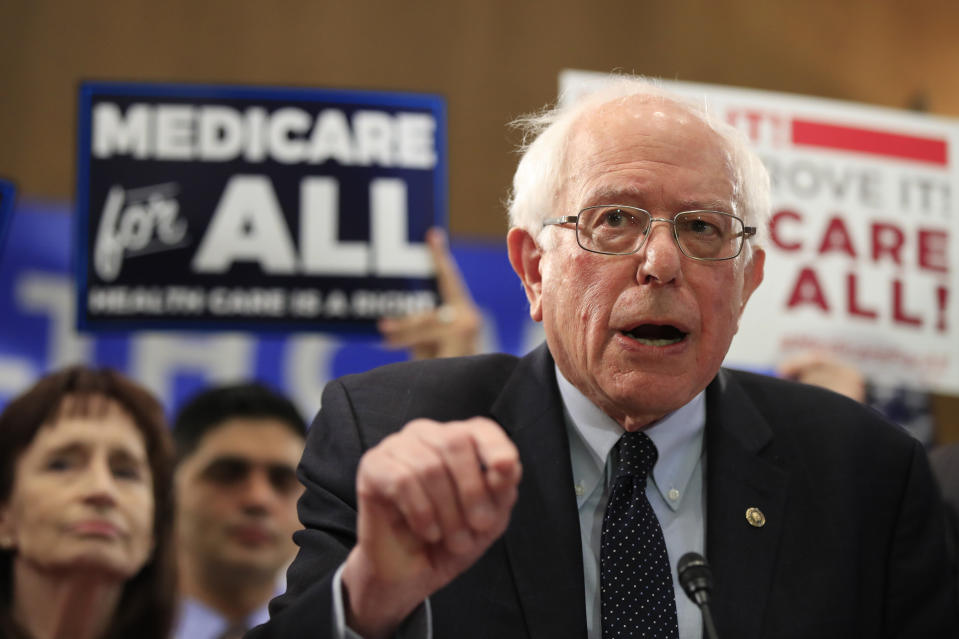Why 'Medicare for all' is doomed
SUBSCRIBE TO BALLOTS AND DOLLARS HERE
In 2014, around 3 million people lost health insurance they were generally satisfied with, because of changes in coverage requirements under the Affordable Care Act. That made the law unpopular and fueled many Republican efforts to kill it.
Multiply that by 50 and you have “Medicare for all,” the plan supported by some Democrats to replace all private insurance with a government-run program. Sen. Bernie Sanders popularized Medicare for all when he ran for president in 2016, and it’s catching on. At least six other Democratic presidential candidates support it, including Senators Cory Booker, Kamala Harris, Elizabeth Warren and Kirsten Gillibrand.
Many Americans struggle with high health care costs, and they want help from Washington. But that doesn’t mean they’re willing to give up private insurance. A recent Kaiser Family Foundation survey of people with employer-provided insurance finds that 68% say their plan is excellent or good. One-quarter say their coverage is average, with only 6% rating their plan as poor or failing. Overall, 72% say they’re “grateful” for their coverage.

Those findings should dissuade any rational politician from pursuing Medicare for all. Nearly 160 million Americans—about half the U.S. population—get health insurance through an employer. Medicare for all would move all of them into a government-run program. So you’d be telling 115 million Americans who are grateful for their health insurance that they have to give it up. It’s hard to think of a way to alienate more voters in one fell swoop.
Out-of-pocket health spending
The Kaiser survey highlights other well-understood problems, however, that should guide politicians aiming to give voters what they need. About one-fifth of people with employer coverage have deductibles of $5,000 or more for a family, and they’re the least satisfied with their coverage. Out-of-pocket health spending has been rising for everybody, on average, as employers pass more of the cost onto workers.
The latest Kaiser survey only analyzes people with employer coverage. Another 21 million Americans have private insurance they pay for themselves, because they’re self-employed or they work for small companies not required to offer coverage. They often get a worse deal, because they don’t have a big employer negotiating group rates on their behalf. And people over 50 buying such insurance, who don’t yet qualify for Medicare, can easily pay $20,000 or more a year just in premiums for a family policy.

Many of those folks would welcome a better health care option, such as the chance to buy into Medicare or a new public program with the scale and market muscle to offer lower premiums. Some Democrats favor this approach to health care reform—leaving the private system intact while finding ways to lower costs for those paying the most. There are a least half-a-dozen plans in Congress along these lines, which presidential candidates such as Sen. Amy Klobuchar and former Colorado Gov. John Hickenlooper support.
Nearly 30 million Americans still don’t have health insurance. Some are young people who don’t think they need it, while others simply can’t afford it, from any source. They, too, might be willing participants in a government plan able to offer lower costs than current options.
A more measured approach
That more measured approach has many practical and political advantages over Medicare for all. The Congressional Budget Office recently reported that transitioning to a Sanders-style single-payer program would be “complicated, challenging, and potentially disruptive.” That’s probably an understatement, and the controversy over the ACA—which was far less disruptive—foreshadows how punishing the hubbub might be for politicians forcing Americans out of plans they’re familiar with, into a new government program.
Medicare for all would also require large tax increases. On the whole, the nation could get more bang for every health care dollar, possibly spending the same amount overall but providing more coverage for more people. But a shift of that magnitude would inevitably leave some people worse off, with their plight amplified by social media, traditional media and political outrage machines. Would that be worth the trouble? The better question might be whether such a transition is even possible, in a political environment with little bipartisan cooperation. The obvious answer seems to be no.
Confidential tip line: [email protected]. Encrypted communication available. Click here to get Rick’s stories by email.
Read more:
The stock market liked these presidents better than Trump
Joe Biden’s economic views need a major update
The Mueller report thoroughly impugns Trump
Winter is coming for big business
Voters are souring on “Medicare for all”
3 problems with Elizabeth Warren’s wealth tax
Rick Newman is the author of four books, including “Rebounders: How Winners Pivot from Setback to Success.” Follow him on Twitter: @rickjnewman
